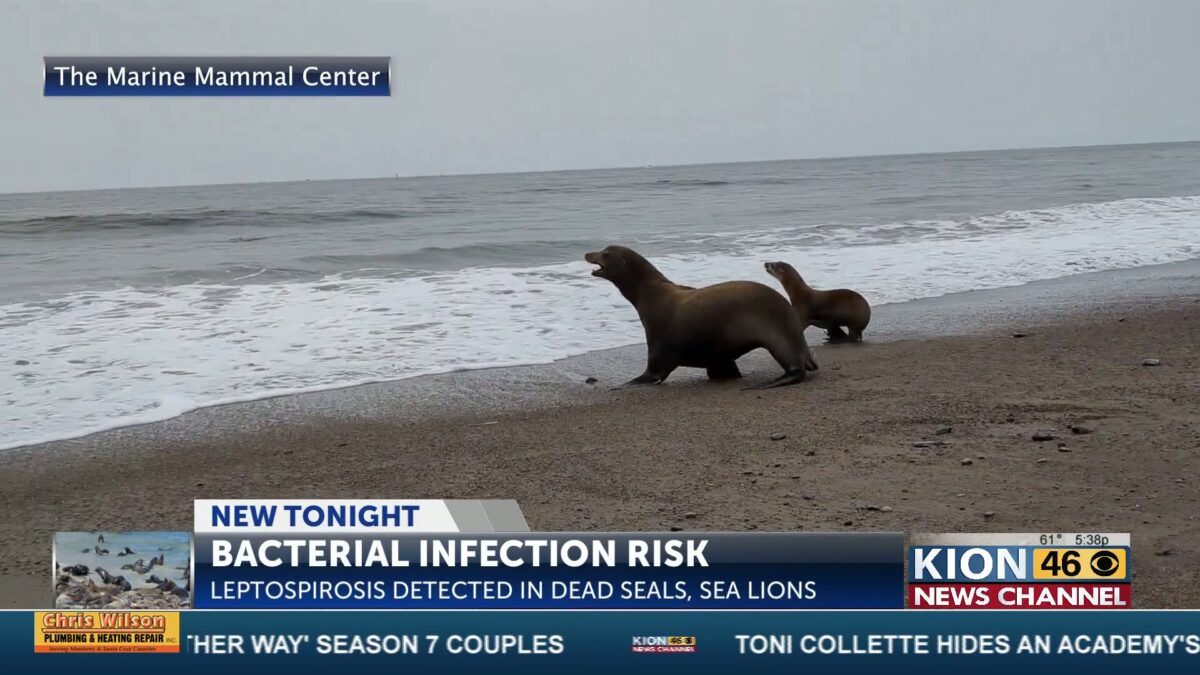Bacteria detected in dead seals raises health concerns along the coast

Briana Mathaw
SANTA CRUZ, Calif. (KION-TV) – If you’re planning a beach day anytime soon especially with your dog you’ll want to be aware of a dangerous bacterial infection that’s been spreading along the Central Coast.
Wildlife experts are sounding the alarm about leptospirosis, a disease that’s affecting marine mammals in Santa Cruz County and surrounding areas.
“Leptospirosis is a bacterial infection that in California, sea lions and other marine mammals can cause kidney failure. It is a severe disease,” Giancarlo Rulli said. Giancarlo Rulli is a spokesperson for the Marine Mammal Center.
The Marine Mammal Center has rescued more than 150 California sea lions with suspected symptoms of leptospirosis.
Just within the month of July, however, it’s been more than 100, so we have seen a very sharp uptick, Giancarlo Rulli said.
Rescue teams have been responding to increasing numbers of calls stretching from Del Monte Beach in Monterey up through Santa Cruz.
“We’re responding to anywhere between about a half dozen or so California sea lions almost daily now, between Monterey and Santa Cruz County. Now, that’s not necessarily unusual in that more than 40% of our rescues occur in those two counties alone annually,” Giancarlo Rulli said.
As for what the public should look for when spotting marine mammals on the shore, there are a few specific signs.
“Some of the telltale signs for a California sea lion impacted by this disease are tightly tucked front flippers. Basically crossing kind of their lower abdomen or stomach region,” Giancarlo Rulli said.
“California sea lions and most marine mammals get all the hydration that they need from the food that they eat. And so if they’re actively drinking water separately, that’s a flag,” Giancarlo Rulli said.
While leptospirosis has been surging in marine wildlife, veterinarians are reminding pet owners that dogs can catch the disease too, often by coming into contact with contaminated water.
“It’s bacteria that enters the dog usually by them drinking contaminated water that has the bacteria in it,” Kelly Akol said. Kelly Akol is a doctor of internal medicine at Pacific and Santa Cruz Veterinary Specialists.
Fortunately, local veterinary clinics have not seen a rise in dog infections, even during the recent surge in marine cases.
“About 12 cases a year for us. The peak is usually in summer in the fall, but we have not been experiencing any uptick in our levels of patients that we’ve seen,” Kelly Akol said.
Still, vets strongly recommend keeping your dog on a leash during beach visits and getting vaccinated against leptospirosis, as it makes a noticeable difference in recovery.
“The number of patients that come in, about 50% of them are vaccinated and 50% aren’t. But again, the ones that are vaccinated are the ones with better survival, shorter term in the hospital,” Kelly Akol said.
“The earlier that we treat these dogs, the quicker. And so these dogs are going to usually feel sick. Maybe have a fever, vomit, not want to eat, which of course is a presenting signs for lots of diseases,” Kelly Akol said.
Experts say the best things dog owners can do are to talk with their vet about vaccination, keep pets leashed during beach trips, and wash paws and water bowls after every visit.